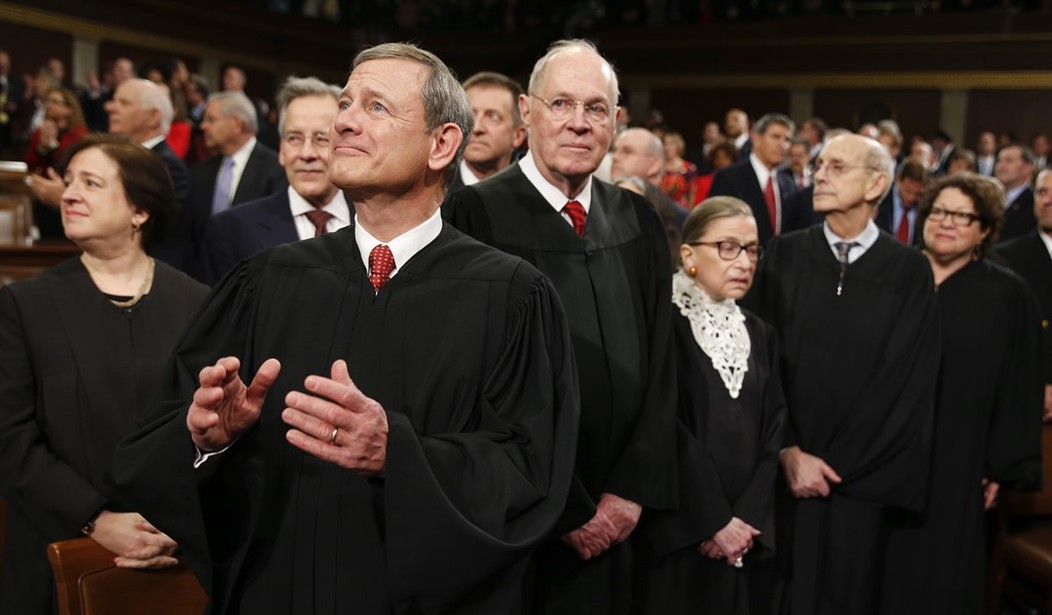This week the Supreme Court agreed to hear another case in the next term which could dramatically impact how states maintain their voter rolls going forward, but not in a way which necessarily guards integrity of the records. This story popped up over at The Nation from Ari Berman and it’s focused on some maneuvers in Ohio which are, frankly, questionable at best. He starts with the story of one voter who hadn’t bothered to go to the polls since he voted for Barack Obama in 2008. He showed up again in 2015 only to find that his voter registration had been cancelled for reasons of “infrequent voting” even though he still lived at the same address and nothing else had changed which would have affected the information on his registration.
That gentleman wasn’t alone. Berman reports that Ohio removed over two million people from the voter rolls between 2011 and 2016, with more than 1.2 million being for that same reason of infrequent voting. The voter in question appealed the purge of his registration and the US Court of Appeals for the Sixth Circuit agreed with him. But Ohio appealed and now the question is going to the SCOTUS.
Ohio appealed to the Supreme Court and today, to the dismay of voting rights activists, the Supreme Court decided to hear the case next term. If the Court reverses the Sixth Circuit and rules in favor of Ohio, it could make it easier for states to purge the voting rolls in inaccurate and discriminatory ways. (Fifteen Republican-controlled states, including Kris Kobach’s Kansas, filed an amicus brief supporting Ohio’s position.) This will be the first major voting rights case heard since Neil Gorsuch took the bench, reviving the Court’s 5-4 conservative majority.
“We’re very disappointed because we believe the Sixth Circuit ruled correctly,” says Freda Levenson, legal director of the ACLU of Ohio. “It was a very important ruling…There were hundreds of thousands of voters who were illegally purged.”
You may find it strange to be reading this under my byline, but I’ve got to side with the Sixth Circuit on this one. Yes, it’s absolutely true that we have horrible problems with the voter rolls and the integrity of elections which need to be addressed. The number of people who are currently registered to vote in more than one state (some of whom may actually be voting in both states) is staggering and it leaves the system open to fraud. We also have an alarming number of dead people still registered to vote, with some of these zombies miraculously managing to make it to the polls. These are all very real problems and states should be encouraged to find ways to tighten up the system and purge those names.
But I’m afraid that “infrequent voting” is a completely bogus basis for action, and it’s not just because it’s in violation of the specific wording of the 1993 National Voter Registration Act. It’s simply the wrong thing to do. Voting is not mandatory in the United States. It’s up to the candidates and the parties to motivate people to get out to the polls. And the idea of putting some sort of expiration date on a voter registration form is a needless burden on the voter. If you change your address or your name then you should certainly be required to change your registration or be turned away when you go to vote. That’s personal responsibility in action. But if your information is still current (for example I’ve lived in the same house for more than 20 years and have never had to change my registration) you should be secure in the knowledge that you can show up on election day and cast your vote.
I’m not sure why the Supremes agreed to take this case on. But since they have, I certainly hope that they offer a narrow ruling which upholds the Sixth Circuit on the question of purging people based on nothing more than “infrequent voting” while allowing states to take other measures to clean up the registration rolls.










Join the conversation as a VIP Member